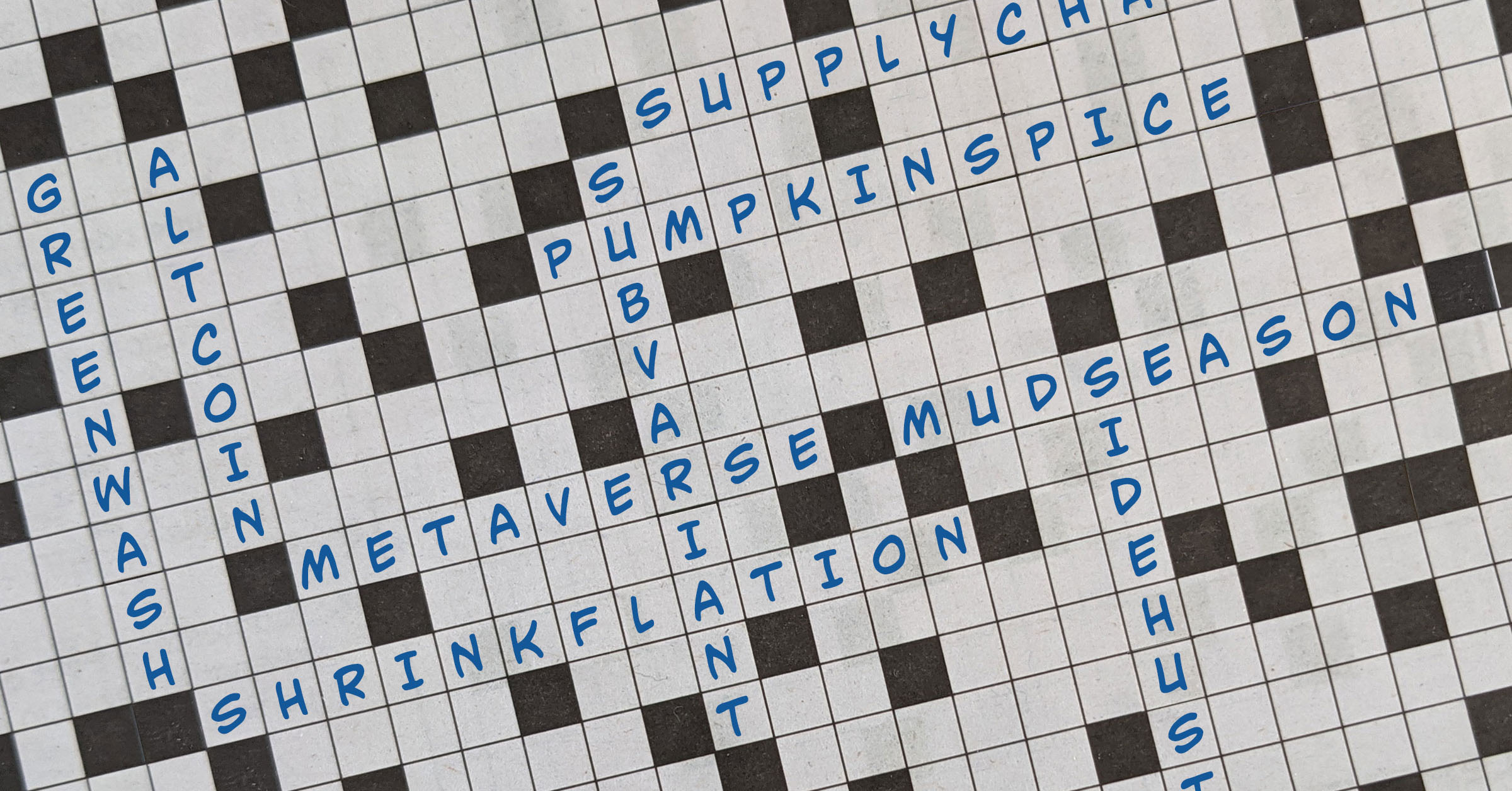Merriam-Webster adds 368 new words to the dictionary
Chances are you’ve been working phrases like mud season, supply chain and side hustle into your conversation and communications since long before 2022. Nor is this necessarily the first year you’ve bellied up to the bar at Starbucks to order a pumpkin spice something (assuming your tastes run in that direction).
But this month, Merriam-Webster, whose roots go back to the early 1800s, will draw even with contemporary usage and add these words and 365 others to the latest editions of its dictionaries.
Like the Oscars and the NFL draft, dictionary updates are a yearly event, eagerly awaited by journalists, copywriters, academics, and wordwatchers worldwide. “Language grows and changes, which means new words and definitions must continually be added,” notes a Merriam-Webster press release. “When many people use a word in the same way, over a long enough period of time, that word becomes eligible for inclusion.” This year’s crop of lexical newbies includes, greenwash, plant-based, false positive (and its equally deceptive cousin, false negative), shrinkflation, altcoin, subvariant and metaverse.
We referenced metaverse last December in a post about the rebranding of Facebook—the company, not the social network—as Meta. Merriam-Webster defines metaverse as “a persistent virtual environment that allows access to and interoperability of multiple individual virtual realities.” (For a fascinating and accessible discussion of the metaverse, tune into the latest episode of Carpenter Group’s Change Makers podcast, featuring an interview with Peabody Award-winning broadcast journalist and documentary producer, Bill Lichtenstein.)
In the metaverse and the meatspace alike (newly defined as “the physical world and environment, especially as contrasted with the virtual world of cyberspace”), words have a tendency to materialize, wriggle around and morph into something different. The English language has never been especially good at sitting still.
“We are all encountering changes in work, public policy, and healthcare, as well as how we communicate online,” says Peter Sokolowski, Merriam-Webster Editor-at-Large. “It’s not surprising that these changes are reflected in the dictionary.” Often, it takes no time at all for a newly-legitimized word to seem as if it’s been in use forever. Think of last year’s first-timers, which included long COVID, dad bod and air fryer.
Of course, dictionary updates don’t go in only one direction—as new words are brought in, old ones must be pushed out, so Merriam-Webster and the Oxford English Dictionary routinely excise words deemed archaic or obsolete. Recent culls include frutescent (shrub-like), frigorific (causing cold), brabble (to argue stubbornly about trifles) and deliciate (to delight oneself by indulging in feasting and revels).
These hoary usages are paradoxically new to us, but now that we’ve encountered them we can’t help feeling the language is a bleaker place without them.
We’ll gladly give up pumpkin spice to have them back.




